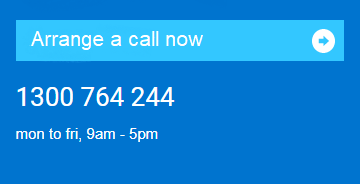Keep your family, home and business safe this summer

Natural and man-made emergency situations can happen at any time. A household emergency plan is to help you and your family be better prepared for an emergency. Use it to record evacuation routes from your home and important numbers and contacts.
Assessment and planning to determine what disasters are more relevant to your home and area where you live can help you and your family reduce the impact of the emergency and may recover quicker afterwards.
- Assess what preparations you should make in cases of i.e. fire, flood storms and determine the best way to evacuate.
- Pick a meeting spot which is a safe distance from the house and a way to contact your family members.
- Designate at least 2 or 3 emergency contact people to connect your family.
- Discuss different scenarios with your family and ensure everyone knows what to do in cases of emergency.
- Practice your emergency plan at least twice a year with your family.
- Have a contingency plan ie your contact person is away, one of the family is out of town.
In the Home
- Locate all possible escape routes in your home.
- Ensure doors and windows are easy to open.
- Ensure your street number is visible from the road.
- Ensure smoke detectors and alarms are serviced regularly.
- Have a fire blanket in the kitchen and/or a fire extinguisher and ensure adults know how to use them.
- It takes about 20 to 30 minutes for a door to burn so it is best to sleep with the door closed.
- Teach your family about basic life-saving techniques. ie Use of fire extinguisher, basic 1st aid, how to turn off gas in the case of a leak, electricity and water.
- Keep a first aid kit and check expiry dates regularly. Store it in an easy to access place and perhaps keep a second one in your car. ie Dressings, bandages, cloth tape, ointments, gloves, scissors, tweezers, non-glass, non-mercury thermometer, medications, 1st aid instruction booklet and a list of emergency numbers
- Emergency numbers could include ie Doctor, SES, Poison help line
Outside the Home
- If you live in a bushy area, ensure you clear your property of brush and high grass.
- If you live in a flood zone contact the Victoria State Emergency Service on 132 500 for information prior to starting your emergency plan.
- Store flammable liquids away from the house
- Regularly check BBQ gas bottles and equipment, hoses and connections can deteriorate over time and cause nasty accidents next time you fire up the BBQ.
At Work
It’s not just homes that can be affected by natural hazards; they may also be a risk to your business. Think of how much you could lose in stock, equipment and fittings due to a flood or fire, along with the profits you could lose for the days and weeks it might take you to clean up after the event.
Develop your emergency action plan
- Develop your emergency contacts list and include local state emergency, police, fire and ambulance services.
- Develop your recovery contacts list and include details of your insurance company, bank, employees, suppliers and any other key people.
- Review your evacuation plan and ensure you have covered any additional procedures required under likely emergency scenarios.
- Create an emergency kit and include things like key documents, phone numbers, torch, first aid kit, portable radio, plastic bags, spare batteries and water.
- Place emergency procedures, contacts, kits and equipment in a prominent location and advise staff.
- Set up an emergency action team, set clear roles and responsibilities and organise appropriate training.
- Rehearse your action plan regularly.
- Keep your action plan up to date.
Insurance can play a major role in recovery after an emergency situation in your home or business. Making sure you have the correct insurances in place can provide peace of mind and safe guard you against financial loss. If you need further information or advice please don’t hesitate to contact CGIB on 1300 764 244.






